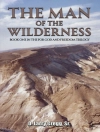In 'A Voyage to Botany Bay, ’ George Barrington presents a compelling narrative of his adventurous journey to Australia, interwoven with vivid descriptions of the landscapes, flora, and fauna encountered along the way. Written in the late 18th century, the book exemplifies the travel literature of its time, characterized by a blend of personal memoir, social commentary, and ethnographic observation. Barrington’s narrative not only chronicles the trials and triumphs of his expedition but also reflects broader themes of exploration and colonialism, offering a glimpse into the imperial ambitions and cultural encounters of the era. His eloquent prose and keen observations engage readers, transporting them into the heart of a transformative historical moment. George Barrington, an infamous pickpocket turned explorer, provides a unique lens through which to view this new world. A notorious figure in 18th-century England, Barrington’s own experiences of crime, punishment, and subsequent transportation to Australia inform his perspective. His life story imbues the text with authenticity and urgency, as he directly confronts issues of morality and redemption while navigating an unfamiliar landscape. Readers seeking an engaging account of early Australian life, tempered by a poignant personal narrative, will find 'A Voyage to Botany Bay’ not only an adventure but also a critical reflection on the complexities of human experience during the age of exploration.
O autorze
George Barrington (1755-1804) was a notorious Irish pickpocket who turned into a convict author noted for his remarkable journey from crime to literature. Born in Maynooth, he earned infamy for his deft thievery in England, which eventually led to his transportation to Australia as a punishment for his crimes. Barrington’s transformation in New South Wales saw both rehabilitation and contribution to early Australian society. His significant literary work, 'A Voyage to Botany Bay’ (1795), is a detailed account of his experiences and observations, commencing from his trial to his ultimate arrival and life in the penal colony of Australia. The narrative is not just an adventure in the author’s life but also offers an early perspective on the emerging Australian environment, colonial practices, and the convicts’ life. It reflects Barrington’s literary style, which is characterized by a mix of personal introspection and broader societal commentary. His writings granted him a unique place in literary history as a convict who managed to capture a pivotal moment in the colonial narrative of Australia. His work has remained not only a source of rich historical insight but also a telling reflection of the potential for personal reform and literary expression under the harshest of conditions.












